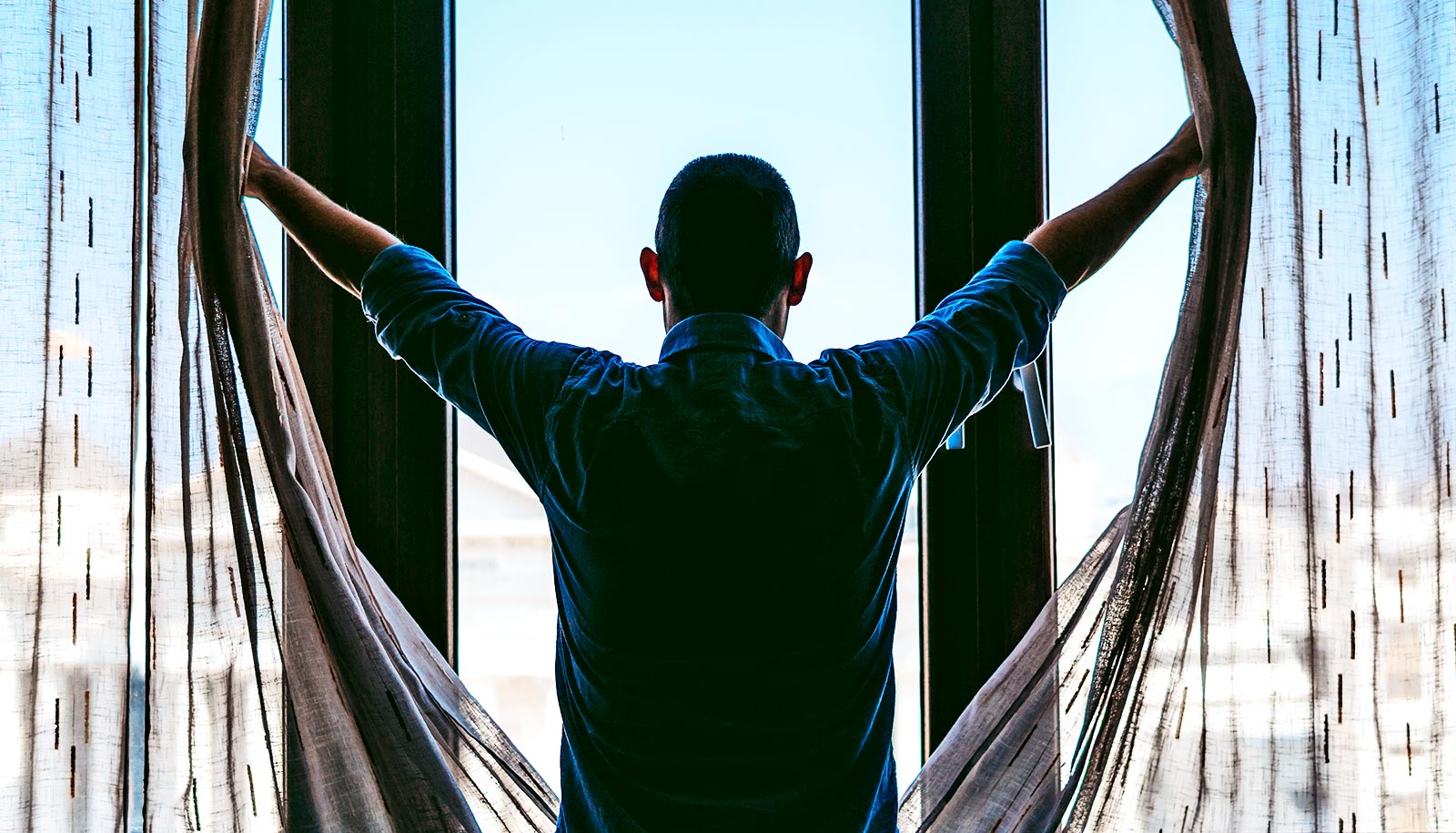
(Credit: Getty Images )
20-hour biological clock turns people into ‘morning larks’
The discovery of why some people are extreme "morning larks" could lead to therapies for inherited sleep disorders and those due to shift work or jet lag.

Mutations in certain proteins can shorten our biological clock timing, making some people extreme “morning larks,” researchers say.
That’s because their internal clocks operate on a 20-hour cycle instead of being synchronized with the 24-hour cycle of day and night.
This causes them to rise early in the morning and go to sleep in the evening. The study in eLife shows that the same molecular switch mechanism these mutations affect is at work in animals ranging from fruit flies to people.
Biological clocks are an organism’s innate timing device. They are composed of specific proteins called clock proteins, which interact in cells throughout the body. Biological clocks produce and regulate circadian rhythms—the physical, mental, and behavioral changes that follow a daily cycle.
For example, sleeping at night and being awake during the day is an example of a light-related circadian rhythm. Many people with sleep phase disorders have changes in their clock proteins. Generally, mutations that make the clock run shorter have a morning lark effect, and those that make the clock run longer have a pronounced night owl effect.
“In this new study, our team focused on mutations in a protein called casein kinase 1 (CK1), which regulates a core clock protein called PERIOD (PER). Clock-altering mutations in CK1 had been known for years, but it was unclear how they changed the timing of the clock,” says Rajesh Narasimamurthy, principal research scientist in the Duke-NUS’ Cancer and Stem Cell Biology (CSCB) program.
Together with scientists from University of California, Santa Cruz and the University of California, San Diego, the team performed structural and biochemical analysis of the CK1 and PER proteins that suggested how the switch works.
The findings show that CK1 can modify either of two sites on the PER protein. Modifying one site stabilizes PER, while the other modification triggers its degradation. When the molecular switch that controls the abundance of the PER proteins is working right, it generates a 24-hour oscillation in the biological clock.
The team showed how mutations in either CK1 or PER itself can alter the balance, favoring degradation over stabilization, thereby disrupting the biological clock.
“Our results provide a mechanistic foundation to understand the essentially universal role of CK1 as a regulator of eukaryotic circadian clocks. It is important to understand how these clock proteins regulate our circadian rhythms, because those rhythms affect not only the sleep cycle but almost every aspect of our physiology,” says corresponding author David Virshup, director of the Duke-NUS CSCB program.
“Understanding these molecular mechanisms may enable scientists to develop therapies for intervening in the clock to alleviate disruptions, whether they are caused by inherited conditions or by shift work or jet lag.”
“Sleep disorders can give rise to serious consequences for health and reduce the quality of life among affected individuals in Singapore and beyond,” says Patrick Casey, professor and senior vice dean for research.
The team is currently investigating how to modify CK1 activity to change clock speed. These studies will guide the search for therapies that can treat jet lag and sleep disorders.
Source: Duke-NUS
The post 20-hour biological clock turns people into ‘morning larks’ appeared first on Futurity.
Share this article:
This article uses material from the Futurity article, and is licenced under a CC BY-SA 4.0 International License. Images, videos and audio are available under their respective licenses.
Related Articles:
Morning people get more out of CPAP machines
March 20, 2023 • futurityA bath at the right time can improve your sleep
July 23, 2019 • futurityLinks/images:
- https://doi.org/10.7554/eLife.52343
- https://www.futurity.org/circadian-rhythm-stress-hormone-2205962/
- https://www.futurity.org/sleep-disorders-circadian-rhythm-1879222/
- https://www.duke-nus.edu.sg/allnews/media-releases/therapies-for-sleep-disorders
- https://www.futurity.org/biological-clocks-sleep-disorders-protein-mutations-2289312-2/
- https://www.futurity.org


